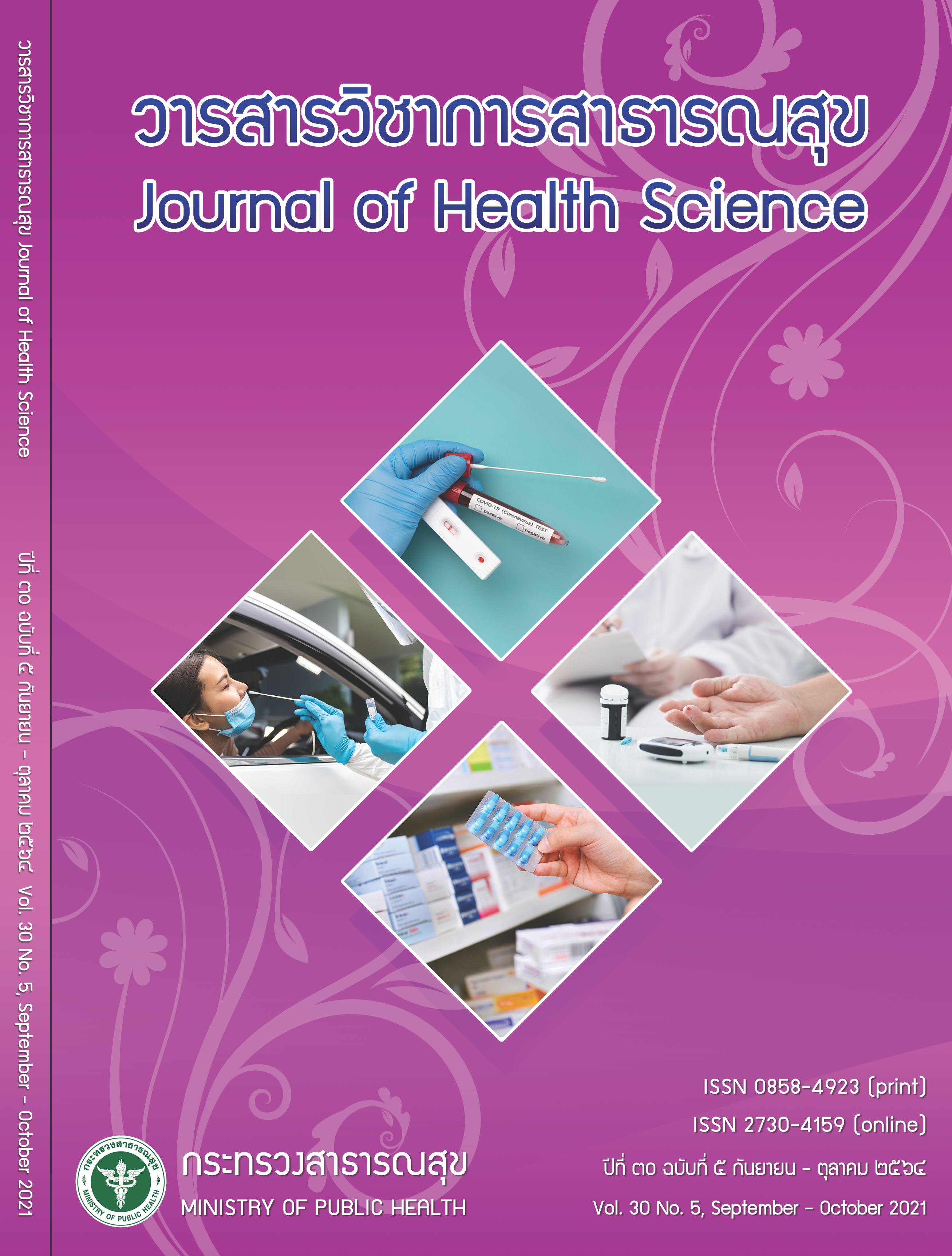Development of Proactive Service Processes in End-Stage Patients by Community Participation in Na Chuak District, MahaSarakham Province, Thailand
Keywords:
proactive service, end-stage patients, palliative careAbstract
This action-research aimed to develop a proactive service process in the end-stage patients using
community participation in Na Chuak District, Maha Sarakham Province. The research process consisted of 3 phases: (1) analysis phase, (2) development phase, and (3) evaluation phase. Altigether 105
individuals were included in the study: (1) 30 end-stage patients, (2) 30 caregivers, (3) 19 public
health personnel, (4) 13 community leaders and community volunteers, (5) 13 personnel in relevant
community organizations. It was conducted from October 2017 - September 2018. The study tools included (1) end-stage patient screening form for community volunteers, (2) satisfactory assessment form
of patients and families, (3) guidelines for interviewing patients and caregivers, (4) group discussion
questions, (5) end-stage patient data recording forms. Data were analyzed by using descriptive statistics
and content analysis. The results revealed that the end-stage patients in the community still lacked of
access to services, did not receive proper care and symptom management in the analytic phase. For the
develipment phase, implementation of the development cycles and quality cycle included (1) searching
and screening for the patients by community volunteers, (2) developing the competency of service providers, (3) developing end-stage patients guidelines, and (4) follow-up/referral/consultation through
the application LINE. The evaluation phase to access the services, proper care and discomfort revealed
that the searching and screening of patients by community volunteers had reached all the end-stage patients, and were followed up via a home visit. Around 90.9% of the end-stage patients had good access to
opioids medication. Majority of patients and their family members were satisfied with the service, 88.7%
and 90.2%, respectively. The results of the study suggested that proactive services through community’s
participation could help finding out the patients who did not have access to the services. Thus, immediate
care as well as appropriate and effective discomfort management services could be readily provided.
Downloads
Downloads
Published
How to Cite
Issue
Section
License

This work is licensed under a Creative Commons Attribution-NonCommercial-NoDerivatives 4.0 International License.







